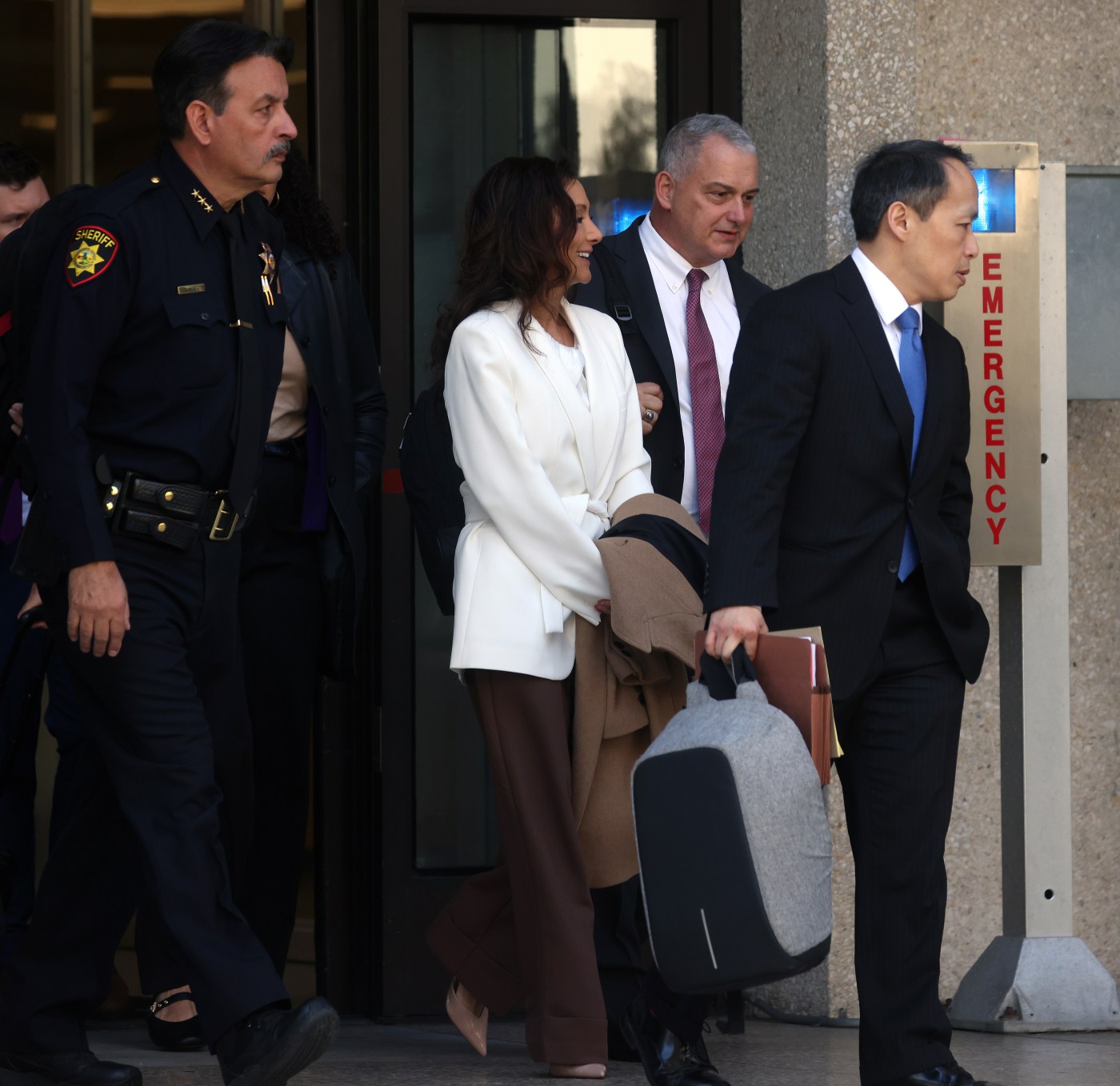
Facing a historic attempt that could make her the first elected sheriff in California removed by a county board, San Mateo County Sheriff Christina Corpus brought allies and supporters to the stand Thursday to defend her leadership as ongoing removal hearings near their end.
The hearings, which have stretched to almost two weeks, have been highlighted by intrigue, and disputes over budget and labor issues.
They have also featured testimony from high-profile figures, including former chief of staff Victor Aenlle, who testified Tuesday and is accused of having an inappropriate relationship with Corpus and of usurping sheriff’s powers — allegations both deny. County Executive Officer Mike Callagy also has testified, after Corpus accused him of interfering in her administration and in labor matters between the office and unions. He denied those accusations.
Corpus faces two efforts to oust her: a civil grand jury accusation filed in June alleging misconduct and abuse of power; and Measure A, a voter-approved initiative passed in March that gave the Board of Supervisors authority to remove a sheriff through 2028, which triggered the current removal hearings.
Last year, the county released a 400-page investigative report by retired Judge LaDoris Cordell, which intensified calls for the sheriff’s ouster.
Related Articles
San Mateo County executive testifies in sheriff removal hearing
Former chief of staff testifies in San Mateo sheriff removal hearing
Union leader arrested by Corpus testifies in San Mateo County’s case to oust sheriff
Week one of Sheriff Corpus removal hearing ends with timecards, politics and emotion
Former aides, colleagues testify against San Mateo County Sheriff Corpus in removal hearing
Thursday’s testimony featured members of Corpus’ executive team and community supporters who remain within her circle even after the release of the Cordell report. The testimonies appeared to present a more positive view of Corpus’ leadership by defense attorneys, countering the county’s efforts to depict the sheriff’s office as being in “disarray” under her tenure.
Manjit Sappal, a contractor hired Jan. 6 to advise on organizational management and cost-saving strategies, testified that Corpus is “very graceful” in meetings and patient with staff, even when deputies arrive unprepared.
Sheriff’s Deputy Michael Garcia, who served under both Corpus and former Sheriff Carlos Bolanos, testified that Corpus “boosted morale” and established an “open-door policy,” making her more “approachable” than her predecessor.
“During the prior sheriff, people felt intimidated to talk to him about things,” Garcia said. “Now, they can approach her a lot easier than in the past.”
RJ Jennings, a Half Moon Bay entrepreneur and supporter, testified that Corpus strengthened ties with immigrant residents after the 2023 Half Moon Bay mass shooting. Jennings alleged that Latino residents had been disproportionately stopped by deputies in the past and criticized Cordell’s report, calling it a “modern-day lynching.”
Newly-hired Assistant Sheriff Sergio Enriquez, who has experience overseeing internal affairs at previous departments, testified that having 38 open investigations older than a year was “not much” and not unusual, disputing county claims that Corpus failed to act on complaints. County attorneys objected several times, arguing his testimony was irrelevant.
The defense ended its examination of witnesses Thursday at around 1:30 p.m., finishing early for the first time since the hearings began, after using 28 of its 35 allotted hours, according to the court clerk. County lawyers have used 19.
Both sides were granted “five days,” counted by the hour, to present their case under procedures adopted in April. The hearings, presided over by retired Judge James Emerson, are informal but follow some court protocols. The county carries the burden of proof under a preponderance of evidence standard.
Corpus is expected to testify again Friday morning before closing arguments. Emerson then has 45 days to issue a recommendation to the Board of Supervisors. Once the board receives the recommendation, it must review it within 30 days. A four-fifths vote would be required to remove her, and the decision would take effect immediately.
If removed, supervisors would have 30 days to appoint a replacement or call a special election. If they fail to act within the prescribed period, the county elections office must schedule one.